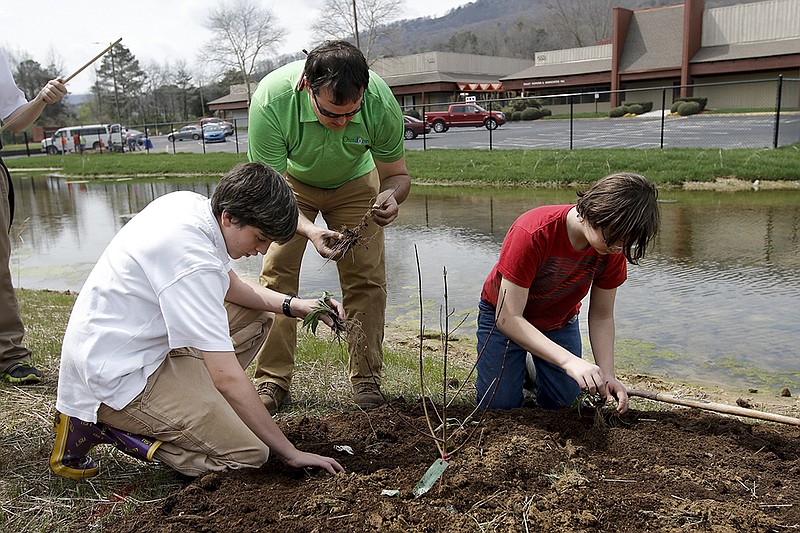The city of Chattanooga wants to align its stormwater runoff regulations with those of the state. We believe it should.
For nearly three years, the city has had more stringent regulations than the Tennessee Department of Environment and Conservation recommends about the amount of rain residential and business properties in the South Chickamauga Creek watershed must retain. The state standard is that the first inch of rain must be kept on the site. Since December 2014, such local properties have had to retain 1.6 inches of rain.
Home builders and developers say the extra .6 of an inch has been costly for the city and its workers. Instead of building new houses in the city, they have gone to Red Bank, North Georgia and Bradley County. Two of the mayoral candidates in the March city election made the issue part of their platforms, saying the regulations had blocked the start of more than 100 new homes and raised the cost of those that were built up to 25 percent, according to one national study.
Chattanooga Mayor Andy Berke defended the more stringent regulations during the campaign but indicated things could change.
Today, the City Council will hear discussion by its Department of Public Works on the effects of changing the stormwater runoff ordinance.
The Chattanooga Stormwater Regulations Board didn't help council members with the decision they'll ultimately have to make when it stalemated on making a recommendation on the issue last month. After 90 minutes of public comment and board member discussion, members couldn't get five votes to retain the current 1.6-inch measure or roll it back to 1 inch.
Developers say they have no desire to make things worse for the city in which they work and maintain they often exceed stormwater regulations anyway.
However, what Terry Greene, executive director of the Homebuilders Association of Greater Chattanooga, said the city could be missing out on is significant.
The one-year local economic impact of building 1,000 single-family homes is $192.2 million in local income, $26.5 million in taxes and other government revenue, and 2,796 local jobs, he said.
Proponents of keeping the stricter regulation point to the damage wielded to coastal areas by rare strong storms like Hurricanes Harvey and Irma earlier this year, and say the South Chickamauga Creek is particularly susceptible to flooding.
While we believe the South Chickamauga Creek will need continuing remediation to prevent flooding, we feel the Department of Public Works wouldn't move off its 2014 regulation if it didn't believe the state stormwater retention standard will be adequate for the area. Unless there is new evidence to the contrary, we encourage City Council members to adopt the state standard - and to keep a close eye on changes from the move.
